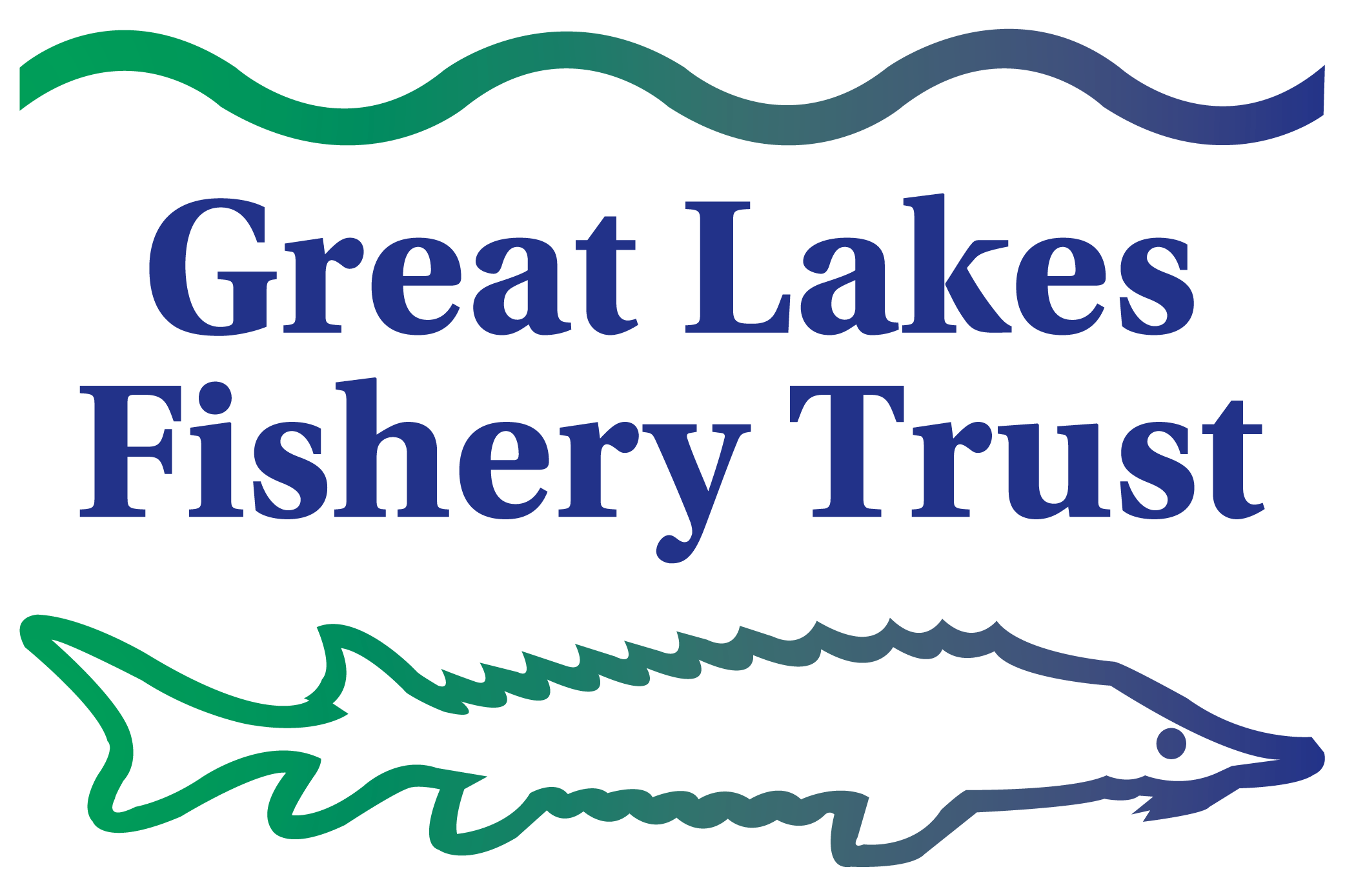Select a year in the timeline below to learn more about our history.
Meeting the needs of the Great Lakes community
The Great Lakes Fishery Trust is an innovative funding source created to compensate the residents of Michigan for the lost use and enjoyment of fisheries resources of Lake Michigan resulting from the operation of the Ludington Pumped Storage Plant (LPSP).
-
Consumers Energy (formerly Consumers Power Company) and DTE Energy (formerly the Detroit Edison Company) began commercial operation of the LPSP. The jointly owned facility draws water from Lake Michigan into an upland reservoir through large, reversible pump-turbines during periods of low electric demand and generates hydroelectric power by discharging water from the reservoir during periods of peak demand.
-
After 13 years of operation, it had become apparent that the plant’s operations were causing fish losses. When the utilities were unable to implement effective barriers to prevent fish losses at the facility as required under its Federal Energy Regulatory Commission (FERC) license, the Michigan United Conservation Clubs and the National Wildlife Federation initiated legal action. The State of Michigan also intervened in the federal licensing proceeding to require the installation of devices to minimize future fish losses and filed a separate action in state court seeking compensation for the losses.
-
After nearly a decade of legal proceedings and negotiations, the Grand Traverse Band of Ottawa and Chippewa Indians, Little River Band of Ottawa Indians, Little Traverse Bay Bands of Odawa Indians, Michigan United Conservation Clubs, National Wildlife Federation, and the U.S. Department of the Interior joined the State in a comprehensive settlement with the utilities. The agreement established the GLFT to receive compensation for past and future unavoidable fish losses. This funding, in turn, is used to compensate the people of Michigan for the damage done to the Michigan fisheries. In addition to grantmaking, the trust also provides oversight and assistance to the utilities to reduce fish loss. A barrier net system was developed that is installed seasonally and mitigates fish loss by over 80 percent.
-
In 2019, a new 50-year license was granted by FERC and the settlement agreement was renewed to provide for another 50 years of operation of the Trust.
-
Today, the parties to the settlement and the utilities are active partners working together to enhance, protect, and rehabilitate Great Lakes fishery resources through the GLFT.
The Great Lakes Fishery Trust is an innovative funding source created to compensate the residents of Michigan for the lost use and enjoyment of fisheries resources of Lake Michigan resulting from the operation of the Ludington Pumped Storage Plant.
Consumers Energy (formerly Consumers Power Company) and DTE Energy (formerly the Detroit Edison Company) began commercial operation of the LPSP. The jointly owned facility draws water from Lake Michigan into an upland reservoir though large, reversible pump-turbines during periods of low electric demand and generates hydroelectric power by discharging water from the reservoir during periods of peak demand.
After 13 years of operation, it had become apparent that the plant’s operations were causing fish losses. When the utilities were unable to implement effective barriers to prevent fish losses at the facility as required under its Federal Energy Regulatory Commission (FERC) license, the Michigan United Conservation Clubs and the National Wildlife Federation initiated legal action. The State of Michigan also intervened in the federal licensing proceeding to require the installation of devices to minimize future fish losses and filed a separate action in state court seeking compensation for the losses.
After nearly a decade of legal proceedings and negotiations, the Grand Traverse Band of Ottawa and Chippewa Indians, Little River Band of Ottawa Indians, Little Traverse Bay Bands of Odawa Indians, Michigan United Conservation Clubs, National Wildlife Federation, and the U.S. Department of the Interior joined the State in a comprehensive settlement with the utilities. The agreement established the GLFT to receive compensation for past and future unavoidable fish losses. This funding, in turn, is used to compensate the people of Michigan for the damage done to the Michigan fisheries. In addition to grantmaking, the trust also provides oversight and assistance to the utilities to reduce fish loss. A barrier net system was developed that is installed seasonally and mitigates fish loss by over 80 percent.
In 2019, a new 50-year license was granted by FERC and the settlement agreement was renewed to provide for another 50 years of operation of the Trust.
Today, the parties to the settlement and the utilities are active partners working together to enhance, protect, and rehabilitate Great Lakes fishery resources through the GLFT.
Mission
The mission of the Great Lakes Fishery Trust is to provide funding to enhance, protect, and rehabilitate Great Lakes fishery resources. The GLFT will manage its resources to compensate for lost use and enjoyment of the Lake Michigan fishery resulting from operation of the Ludington Pumped Storage Plant.
Vision
The Great Lakes Fishery Trust is an innovative funding source created to compensate the residents of the State of Michigan for the lost use and enjoyment of fisheries resources of Lake Michigan resulting from the operation of the Ludington Pumped Storage Plant.
The GLFT envisions the Great Lakes as supporting a sustainable and diverse fishery that meets the needs of the Great Lakes community for a healthy environment, wholesome food, recreation, employment, commerce, and preservation of its cultural heritage. The GLFT will dedicate its assets to fostering realization of this vision, particularly for Lake Michigan.
The guiding principle of the GLFT is to consider the total environment, recognizing the connections in the chemical, physical, and biological processes of the Great Lakes ecosystem as well as the human uses and values associated with this magnificent resource. The GLFT recognizes that public understanding of, and involvement in, Great Lakes fishery management is essential to successfully attaining its objectives.
Board of Trustees
The GLFT is governed by an eight-member Board of Trustees comprised of representatives from entities that were parties to the original settlement that created the trust.
Frank Beaver
Little River Band of Ottawa Indians
Randy Claramunt, Chair
Fisheries Chief, Michigan Department of Natural Resources
Doug Craven
Little Traverse Bay Bands of Odawa Indians
Scott Hicks
U.S. Fish and Wildlife Service
Rebecca Meuninck
National Wildlife Federation
Brian Napont
Grand Traverse Band of Ottawa and Chippewa Indians
Dana Nessel
Attorney General, Designee: Daniel Bock
Amy Trotter
Michigan United Conservation Clubs
Scientific Advisory Team
The Board of Trustees is supported by a 12-member Scientific Advisory Team (SAT). The SAT reviews grant proposals based on scientific merit and assists with other technical aspects of the Trust and operations of the Ludington Pumped Storage Plant.
Patrick Ertel
Michigan Department of Natural Resources
Tom Gorenflo
Chippewa Ottawa Resource Authority
Julie Hinderer
National Wildlife Federation
Dana Infante
Michigan State University
Michelle Marion, Co-chair
Consumers Energy
Archie Martell
Little River Band of Ottawa Indians
Gary Michaud
Little Traverse Bay Bands of Odawa Indians
Erik Olsen
Grand Traverse Band of Ottawa and Chippewa Indians
Matt Shackelford
DTE Energy
Gary Towns
Michigan United Conservation Clubs
Susan Wells
U.S. Fish and Wildlife Service
Jay Wesley, Co-chair
Michigan Department of Natural Resources
Great Lakes Fishery Trust Staff
The GLFT is staffed by Public Sector Consultants (PSC), a nonpartisan research and consulting firm. When the Trust was created in 1996, the board engaged PSC to staff the organization, leveraging PSC’s experience, expertise, and history with natural resource issues.
Jonathon Beard
Manager and Secretary
Julie Metty Bennett
Senior Advisor
Kathryn Frens
Grant Manager
Meagan O’Brien
Grant Manager
Brianna Pagel
Executive Assistant
Elizabeth Riggs
Grant Manager

